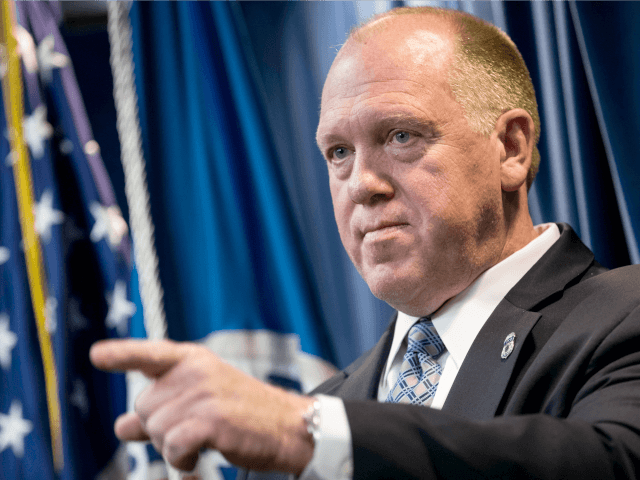The federal immigration raid on a Tennessee meatpacker was prompted by a bank alert showing large cash withdrawals for payrolls, according to a federal affidavit.
The cash payments since 2008 “were in excess of $25 million,” according to the federal affidavit posted by a local TV station, WATC.com.
Ninety-seven people were detained in the raid on Tennesee-based Southeastern Provisions, including 10 people arrested on federal charges and one person who was arrested on state charges. Of the remaining 86 people, 54 were detained, likely for deportation, while 32 were released.
The raid provides more evidence that federal officials at U.S. Immigration and Customs Enforcement are stepping up inspections and raids, as promised by USCIS director Thomas Homan. “We’ve got to get rid of the magnets,” Hamn said in December 2017. “We’re talking about employers who knowingly hire people who are not authorized to work.”
According to WATC’s description of the raid and the federal affidavit
An investigation revealed that James Brantley, who is the president of Southeastern Provisions and his wife Pamela Brantley, along with their daughter Kelsey Brantley and Priscilla Keck, an employee, were withdrawing cash to pay employees at the slaughterhouse …
…
A confidential informant working for law enforcement was hired by Southeastern Provisions and told law enforcement he never completed any paperwork nor was he required to show any identification or documentation before being hired. The informant said he was told he didn’t need a lawful identity to work at the company. He also reported he was paid in cash given to him in an envelope. The informant said most of the 60-70 employees he saw working were Hispanic.
The production workers were required to work overtime without being paid extra for their overtime hours, according to the informant. He said they were also required to work with harsh chemicals, including bleach mixed with other cleaning agents, without proper eye protection.
Press statements did not mention charges against the owners of the company, but those charges may be announced later.
The raid is sending shock-waves through the meatpacking industry which is being caught between marketplace pressure to keep costs low and the federal laws barring the employment of cheap foreign migrants. This tough market depresses the Wall Street value of slaughterhouse companies, including the largest firm, JBS USA.
The pressure is also being raised by President Donald Trump, whose deputies have stepped up enforcement of immigration laws and have also restricted the supply of cheap imported workers for the meat-processing industry. For many years, the industry has relied on a mix of immigrants, illegal migrants and legal refugees from Syria, Somalia, and other unfortunate countries.
The resulting marketplace pressure is pressuring reluctant meatpackers to raise their salaries. For example, the JBS meatpacking company has raised salaries by 25 percent to help persuade more people to work in a Texas slaughterhouse, according to March 4 article in Washington Post.
Other industries are facing similar pressure from Trump’s pro-American policies.
In 2017, 800 illegal workers were removed from the Cloverhill bakery, in Chicago, opening up hundreds of jobs at higher wages to local Americans, including African-Americans.
In September 2017, the Asplundh Tree Expert Co. agreed to pay a $95 million fine for hiring illegals. That fine is a small payment for a 30,000-person company with revenues of $3.5 billion per year, but three company managers pled guilty to crimes.
Four million Americans turn 18 each year and begin looking for good jobs in the free market.
But the federal government inflates the supply of new labor by annually accepting roughly 1.1 million new legal immigrants, by providing work-permits to roughly 3 million resident foreigners, and by doing little to block the employment of roughly 8 million illegal immigrants.
The Washington-imposed economic policy of economic growth via mass-immigration floods the market with foreign labor, spikes profits and Wall Street values by cutting salaries for manual and skilled labor offered by blue-collar and white-collar employees. It also drives up real estate prices, widens wealth-gaps, reduces high-tech investment, increases state and local tax burdens, hurts kids’ schools and college education, pushes Americans away from high-tech careers, and sidelines at least 5 million marginalized Americans and their families, including many who are now struggling with opioid addictions.



COMMENTS
Please let us know if you're having issues with commenting.